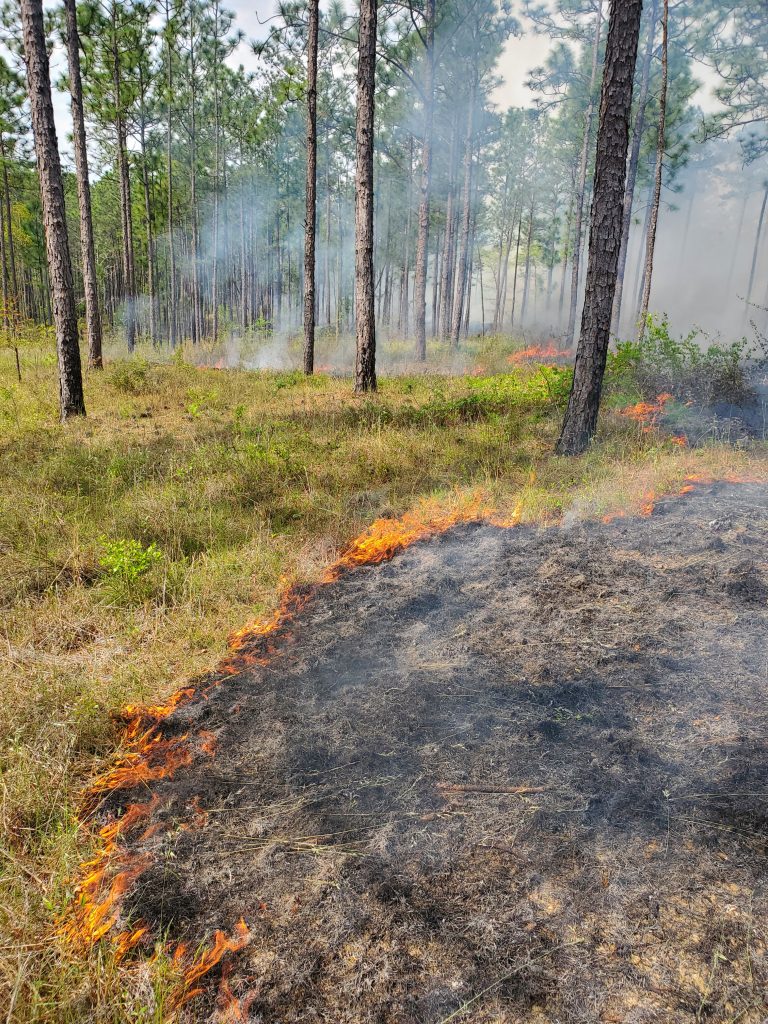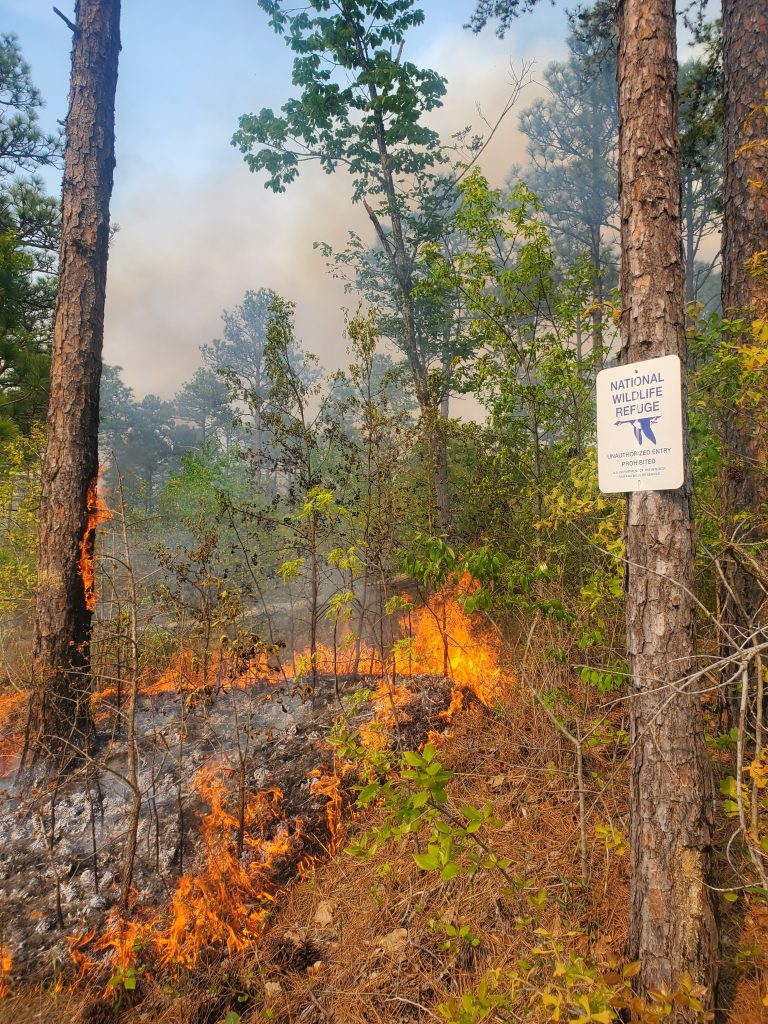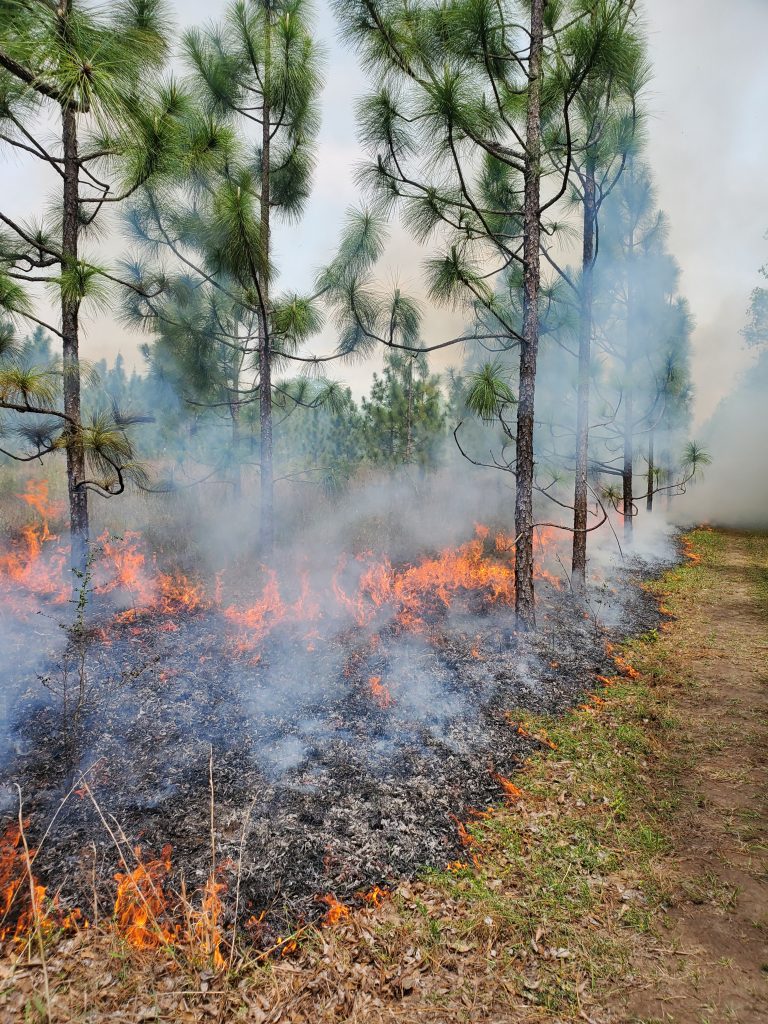NWTF and Partners Annually Enhance over 70,000 acres in Alabama
The Alabama NWTF State Chapter is proud to continue its support of The Nature Conservancy's Fire Management Program, a collaborative endeavor improving wildlife habitat on over 70,000 acres in the state annually.
2024 is the fifth year the NWTF, The Nature Conservancy and numerous partners pooled their resources together to make a landscape-scale impact on longleaf pine ecosystems throughout Alabama.
"Our support of TNC’s fire management program is focused on restoring longleaf pine ecosystems in their historic range,” said Derek Alkire, NWTF district biologist for Alabama, Tennessee and Kentucky. “This effort is important for both creating the early successional habitat that wild turkeys and numerous other species rely on and restoring this vital ecosystem to its former glory.”

Longleaf pine ecosystems once dominated the Southeast, extending from Virginia to Florida and expanding as far west as eastern Texas. Today, however, estimates show that longleaf pine ecosystems encompass about 3% of their historic range and are often fragmented.
Throughout time, this ecosystem has depended on naturally occurring fire as a disturbance to set back hardwoods and other pines that would otherwise create more competition for forest resources.
The results of a naturally occurring fire in a longleaf pine dominated area would offer a patchwork of habitat for wild turkeys, including roosting sites, openings for foraging and brood rearing and provide areas with cover for concealment against predators.
TNC’s Fire Management Program is aimed at improving longleaf ecosystems by mimicking nature's natural disturbance of fire and creating the mosaic of habitat that the wild turkey and many other longleaf-ecosystem-dependent species need.
In addition to the NWTF, partners for TNC's Fire Management program in Alabama include the National Fish and Wildlife Foundation, the U.S. Fish and Wildlife Service, the USDA Forest Service, the Alabama Department of Conservation and Natural Resources and multiple private entities.

Over the past five years, TNC's Fire Management Program has made significant strides. The program has implemented three to four teams working across Alabama who plan and implement prescribed fire. The success of these teams has resulted in the implementation of prescribed fire on about 70,000 acres every year for the last three years, with no signs of slowing down. This has had a profound impact on the restoration and enhancement of longleaf pine ecosystems.
“The implementation of prescribed fire reduces the risk of wildfires and creates quality habitat for early successional species across the state,” Alkire said. “Threatened and endangered species like the Red Cockaded Woodpecker and the Gopher Tortoise have greatly benefitted from the frequent fire return intervals that have allowed populations to grow.”

TNC’s Fire Management Program dovetails into other efforts the NWTF is involved to restore longleaf pine ecosystems, such as the USDA’s Longleaf Pine Initiative, America’s Longleaf Restoration Initiative and the NWTF's National Forestry Initiative. These landscape-scale efforts are working in unison to deliver active forest management on private and public lands across the entire Southeast that promote the health of existing longleaf pine forests as well as the regeneration of the ecosystem.
The Alabama NWTF State Chapter has allocated funds for 25 projects in 2024, including this one. For the current year alone, the chapter has earmarked $189,613, a significant investment that is being matched by the NWTF’s partners to over $1 million. These funds are set to enhance over 121,000 acres in the 2024 fiscal year, a testament to the Alabama NWTF State Chapter’s commitment to conservation, habitat restoration and the wild turkey.
